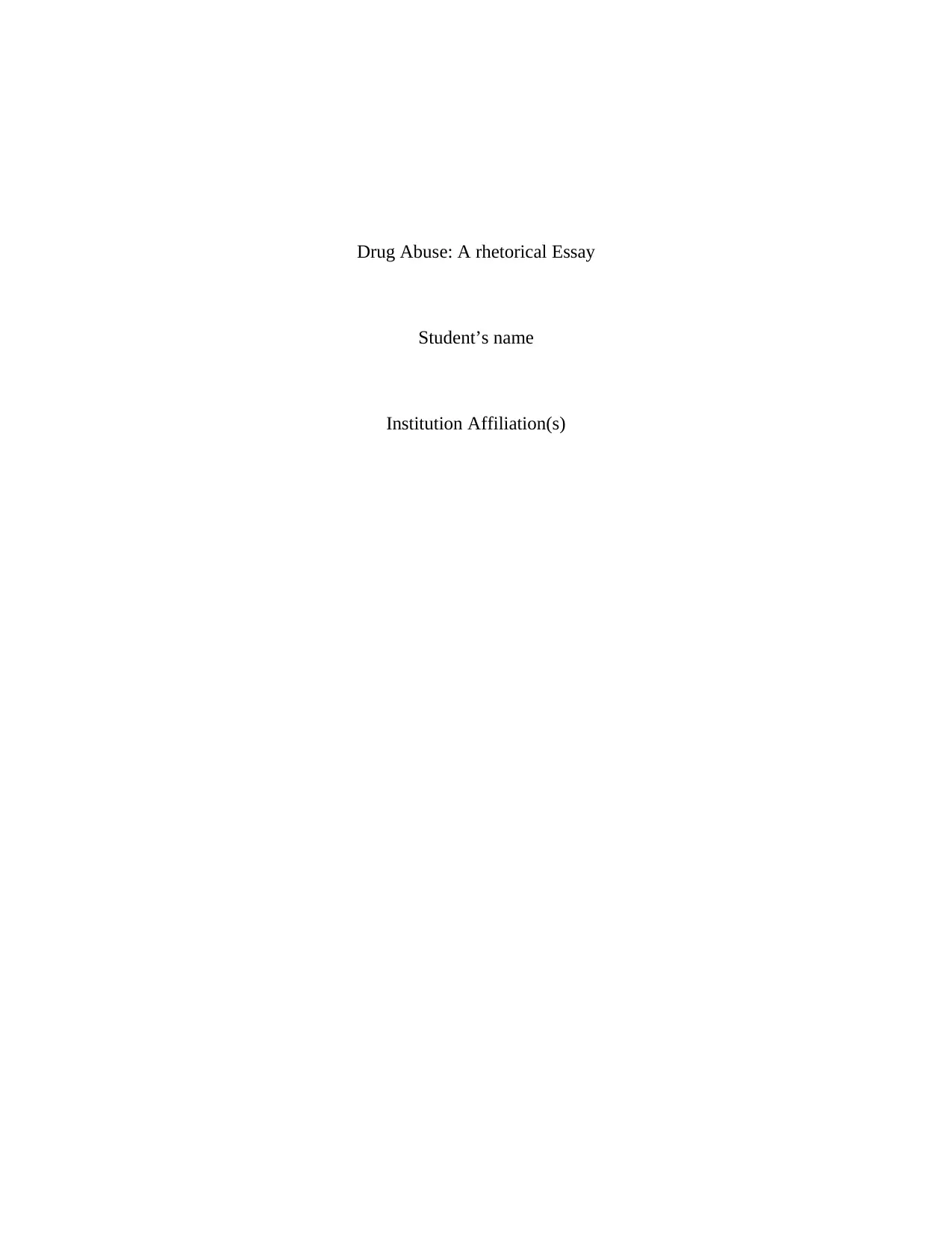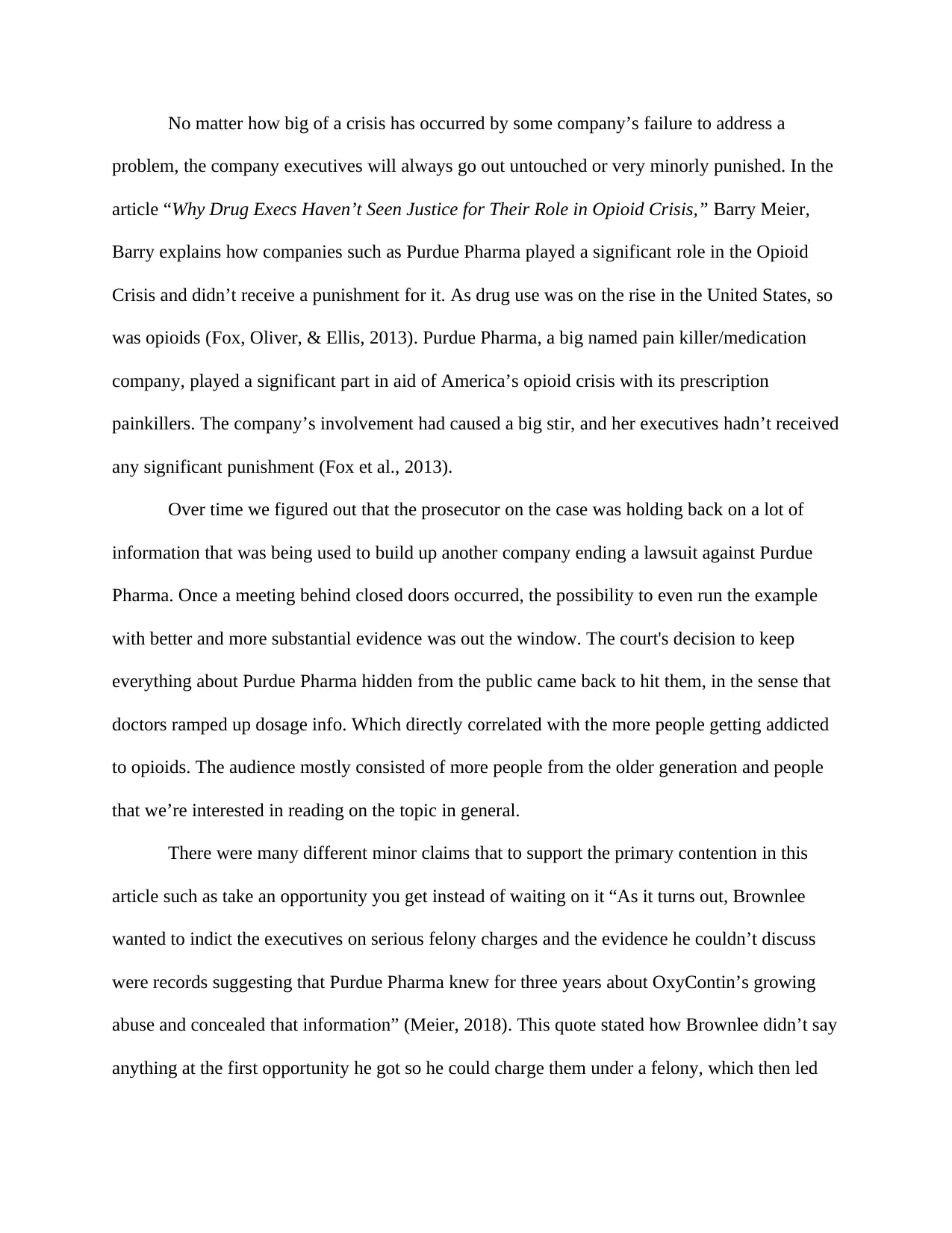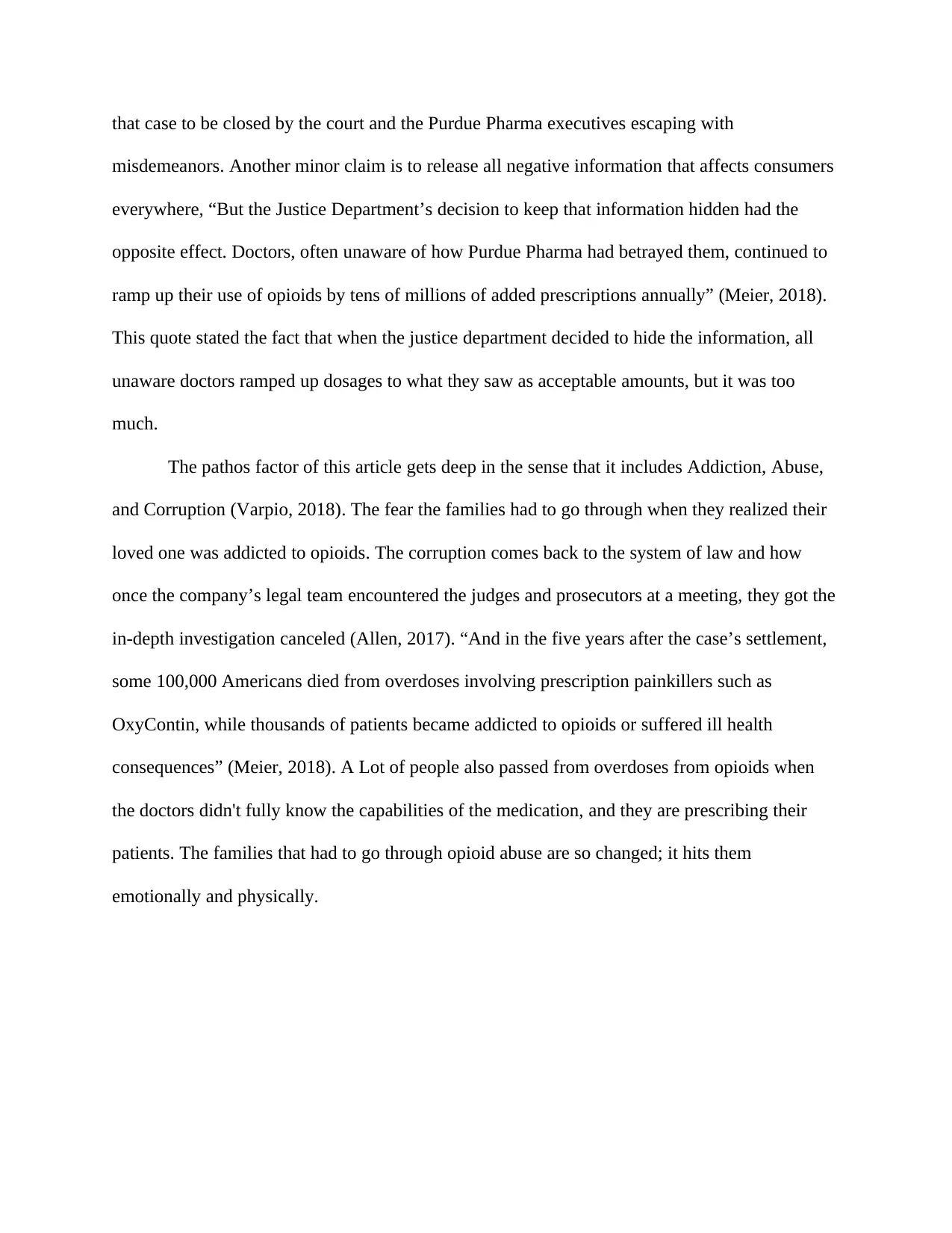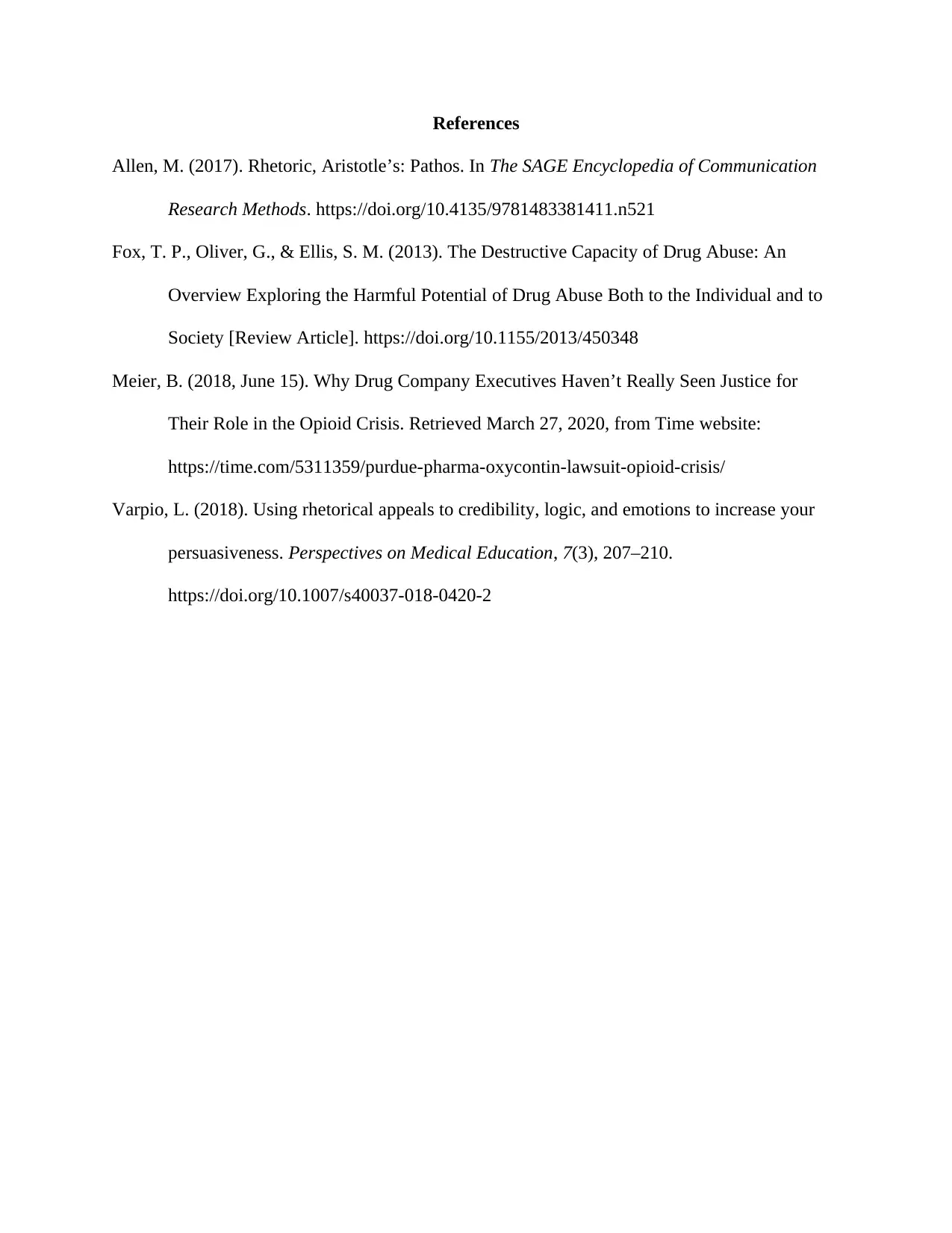Rhetorical Analysis of Drug Abuse: WRIT1001 Essay on Opioid Crisis
VerifiedAdded on 2022/09/01
|4
|870
|15
Essay
AI Summary
This rhetorical essay analyzes Barry Meier's article "Why Drug Execs Haven’t Seen Justice for Their Role in Opioid Crisis," focusing on the opioid crisis and Purdue Pharma's involvement. The essay examines how the company's actions and the justice system's response, or lack thereof, shaped the crisis. It explores the rhetorical strategies used by Meier, including the use of pathos, and examines the consequences of the company's actions, such as increased addiction and overdoses. The essay highlights the corruption within the legal system and how executives escaped significant punishment, while thousands died from overdoses. The essay also uses supporting claims from the article to further support the main argument, such as the importance of taking opportunities and releasing all negative information that affects consumers everywhere. The essay also cites multiple sources to support the arguments made.
1 out of 4






![[object Object]](/_next/static/media/star-bottom.7253800d.svg)